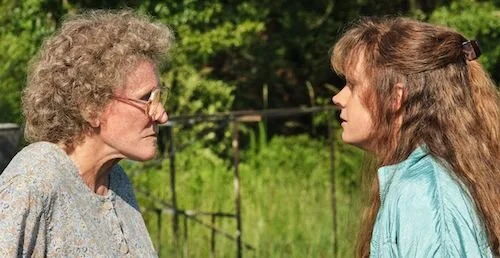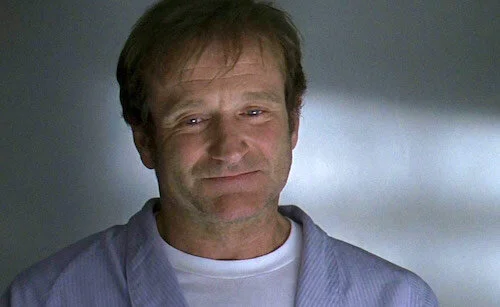How Much Should Biopics Drift Away From The Truth?
Hillbilly Elegy.
It’s not a secret that Hillbilly Elegy is getting terrible reviews. That’s not what we’re going to discuss today. Instead, I’m going to look at the fact that it deviates from its true story source, kind of like another Ron Howard film: A Beautiful Mind (amongst others). Now, that film has been heavily panned by some viewers for how different it is to real life, particularly the ways it avoids some of John Nash’s life and turns his audible schizophrenia into visual hallucinations. The way I see it, those parts of Nash’s life might not have pertained to the message A Beautiful Mind was trying to tell, and the hallucinations helped to tell that part of his story in a more cinematic sense (plus it makes the twist much more believable). I say A Beautiful Mind is to be taken with a grain of salt when it comes to its declarations of real life, as it is more or less based on real people but very much its own tale.
So, with that I ask: how much should biopics drift away from the truth? I don’t think “biopics” should be complete fabrications, because at that point they can do a great disservice to their source materials and lives. Of course, the line one should draw isn’t easy to just state now as a rule of thumb, and I do believe every film has its own case-by-case scenarios as to how far a writer or director can go with their deviations. After all, I see deviations as a betterment of a film, if they lend to better story telling, character structure, downsizing of casts, smushing of time to fit more in, and additional benefits. Telling outright lies in a slanderous or manipulative way isn’t what I mean. For instance, let’s look at Jimi: All is By My Side. Jimi Hendrix’s former partner Kathy Etchingham claims that the film exaggerated their relationship, and made him look abusive rather than snippy. Now, I don’t know what the truth is, but if the Hendrix biopic is fabricated, then that’s far too much of a deviation for me. It turns the subject into an unlikeable person, which is silly if they didn’t even do these actions (especially if they can’t even defend themselves). Again, I don’t know the truth about this, and I’m just taking Etchingham’s word as an example of how far a writer shouldn’t go.
Patch Adams.
One example I am certain about is Patch Adams. A character, Carin, doesn’t exist at all in real life. Her character was based on a real companion of Adams’ who was murdered by a patient he was tending to. The film turns a real person into a love interest for the lead character (obviously Patch Adams), and then has them killed off as a disingenuous way of affecting the film’s protagonist. That is not only schlocky writing that is too on-the-nose, but that defiles the legacy of a real person, turning them into a narrative device, rather than honouring their efforts and respecting their passing. That is disturbing to me. That did not need to happen. Granted, I really don’t care for Patch Adams anyway, so I’m not sure if staying closer to the truth would have even saved the film, but at that point at least don’t be distasteful.
Making Mark Zuckerberg seem more vindictive in The Social Network? That’s fine, because it’s fairly clear that Aaron Sorkin’s screenplay is more of a metaphor for relationships and partnerships in the digital age, rather than a retelling of the Facebook story. Downplaying Freddie Mercury’s sexual exploration in Bohemian Rhapsody? Well, that might not be highlighting his identity and what he stood for all too well. See, this is honestly an argument to bring up with each and every single film, because your answer will likely change every single time. I’m all for what makes for a better story. The Social Network added texture to a business decision that was egregious, but not as exciting in real life (now, there’s literary nuance). Bohemian Rhapsody ended up flattening Mercury as a character, whilst picking-and-choosing parts of his life that would have ultimately made for a better film if included. Then again, all of this is subjective, and you may very well disagree with me. This is why there is no definitive line.
The Social Network.
However, I believe there is at least a handful of examples that should be set in stone and completely avoided, especially since we’re this far into the twenty first century (and yet, some filmmakers and studios still have yet to learn). This is the erasure of cultures, voices, and identities in the name of “marketability”, which is especially nonsensical now, since studios no longer are outwardly bigoted and they profess to celebrate inclusion. White washing the story of Jeff Ma for 21? Roland Emmerich’s insistence that Stonewall was a “white event” and persons of colour had little to zero involvement in the Stonewall riots? Problematic, and flat out wrong. Resorting a person’s life to being a love interest in Patch Adams? You already know how I feel about that. This is the kind of fabrication that should never happen, especially since society has erased the voices of women, persons of colour, the LGBTQ+ community, indigenous people, and other marginalized voices in many ways: not preserving their works, silencing their politics, drowning out their voices, and many other ways over the course of history.
Studios are claiming inclusion: isn’t it time they prove it? Wouldn’t being the first studios to actually cater to all voices make as much money as those that keep up the old negligent standards? Isn’t backlash detrimental to sales? At that point, to me, veering of course of the truth feels like a purposeful rewriting of history. The Social Network spiced up a legal debacle. Stonewall downplayed the involvement of persons of colour, and therefor downplays them as audiences and activists today. There’s levels to this. Tightening and sharpening up a story benefits a film. Trying to cater to old demographics is deceitful about society. Tell a better story if you need, but don’t pretend that literally millions of people don’t exist or don’t matter. At the end of the day, the latter doesn’t improve a story anyway. They might be last resorts by studios trying to sell a dud, and they wind up with a detestable, problematic turd instead.
Andreas Babiolakis has a Masters degree in Film and Photography Preservation and Collections Management from Ryerson University, as well as a Bachelors degree in Cinema Studies from York University. His favourite times of year are the Criterion Collection flash sales and the annual Toronto International Film Festival.





